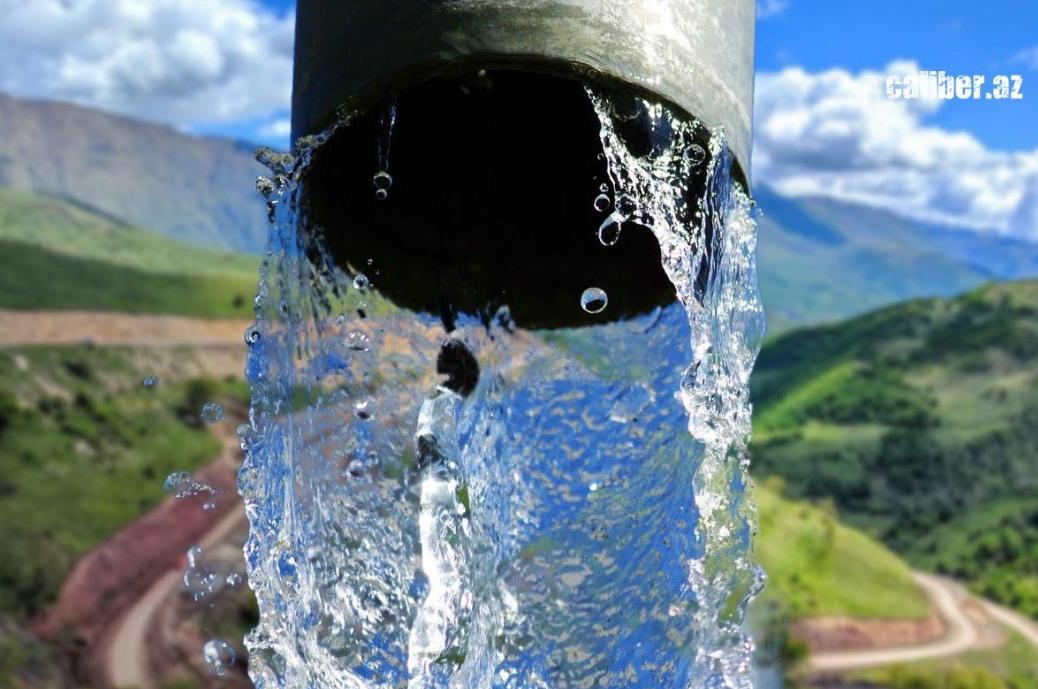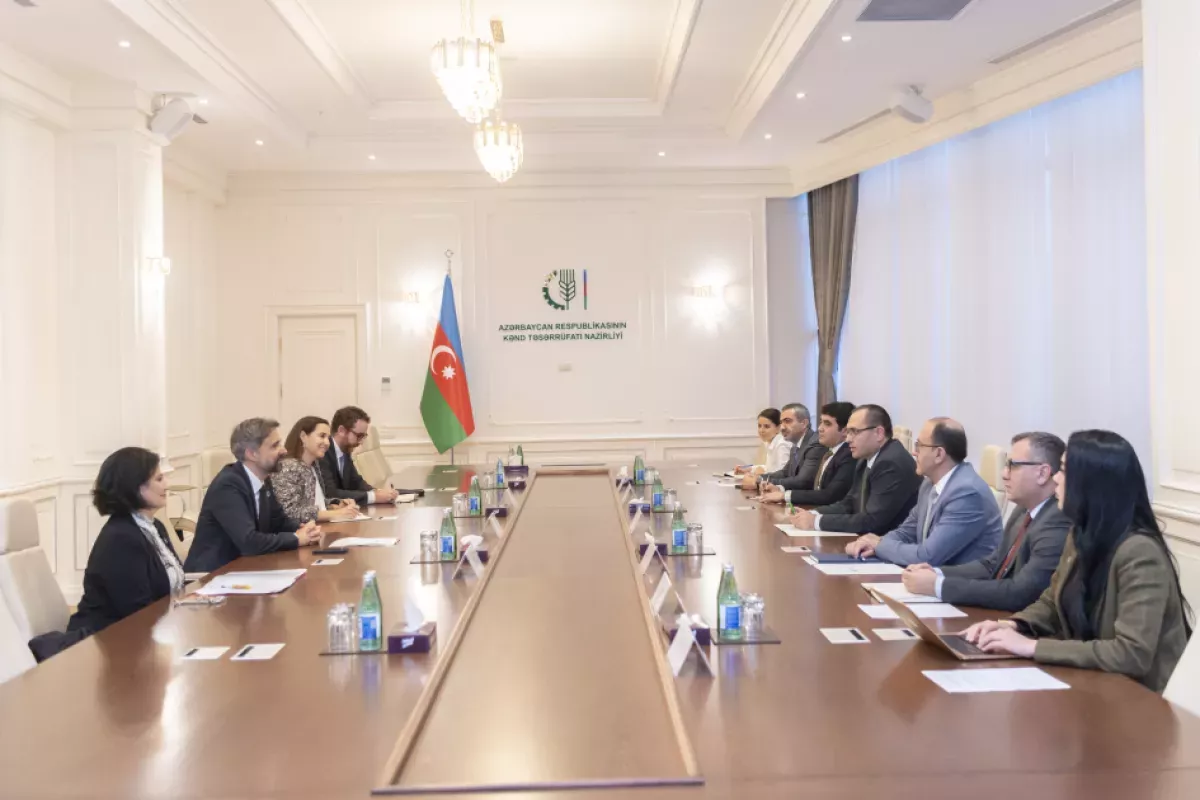COP29: Azerbaijan’s strategic focus on climate-resilient agriculture solutions Digital transformation and more
The negative impacts of climate change over the past decade have been most keenly felt in the agricultural sector: more frequent droughts, irrigation crises, soil erosion, and salinization, alongside the slow adoption of modern "green" agricultural technologies, are evident worldwide. These challenges have been further exacerbated by rising global inflation and reduced access to favourable financing for farmers, posing significant risks to food security in developing countries.
It is no surprise, then, that the agricultural sector has taken a prominent place in the agenda of the ongoing UN conference COP29 in Baku. The forum has assessed the climate challenges facing the sector and explored opportunities for expanding Azerbaijan's cooperation with key UN agencies, such as the International Fund for Agricultural Development (IFAD) and the Food and Agriculture Organization (FAO).
According to the latest statistics from the Food and Agriculture Organization of the United Nations (FAO) over the past three to four years, many developing countries have been under immense pressure from the negative impacts of climate change, which are accompanied by desertification, soil erosion, salinization, and water scarcity. Furthermore, disruptions to logistics and cost chains, customs and non-tariff barriers, the low added value in agricultural raw material exports, and weak processing industries in developing countries have only exacerbated the challenges faced by the agricultural sector.
Azerbaijan is among the countries facing these issues, as highlighted by FAO experts, who have included it in the list of 20 nations whose agricultural sectors have been most affected by water scarcity. Some 3.61 million hectares of land, or 41.8% of the country's total land area, are affected by severe erosion and dehydration. Overall, around 70% of the country’s freshwater is used for agriculture. Therefore, a key priority for the domestic agricultural sector is to reduce water loss in irrigation channels by implementing modern insulation technologies and efficient irrigation systems in the fields.

"About 40% of the world's soil resources are facing degradation, which poses a threat to ecosystems, food security, and water resources," said Azerbaijan’s Minister of Agriculture, Majnun Mammadov, during a roundtable organized as part of COP29 on the topic Land Degradation and Climate Change: Losses, Damages, and Opportunities for Strengthening Cooperation among Countries of Central Asia, the Caucasus, and Regions with Arid Climate. "In recent decades, unsustainable agricultural practices, deforestation, urban expansion, and the growing impact of climate change have accelerated soil degradation worldwide. According to the UN Convention to Combat Desertification (UNCCD), approximately 12 million hectares of fertile land are lost each year due to degradation," he added.
According to Mammadov, in light of current challenges, it is crucial to strengthen state support and expand international cooperation in the areas of digital transformation in agriculture, technology transfer, and the exchange of best practices to achieve sustainable development. Notably, against the backdrop of increasing climate risks, Azerbaijan has intensified its efforts to meet the United Nations Sustainable Development Goals (SDGs) in the area of food security. In this regard, the country is expanding the use of modern technologies, supporting the development of climate-optimized agricultural systems, and providing farmers with various subsidies and loans to implement efficient irrigation solutions, prevent soil degradation, and enhance fertility.
For these purposes, Azerbaijan has intensified the exchange of experience and know-how in close coordination with international specialized organizations, including through FAO programs. One of the key examples of cooperation between COP and FAO is the Climate-Smart Agriculture (CSA) initiative, which promotes sustainable farming practices that take climate change into account. This program includes methods to enhance crop resilience to extreme weather conditions, improve water resource management, and preserve biodiversity.
The ongoing COP29 conference in Baku is no exception in this regard: Azerbaijan and FAO signed a memorandum of understanding to strengthen cooperation within the Baku Harmoniya Climate Initiative for Farmers, which is part of the Sustainable Transformation for Food and Agriculture (FAST) initiative. During a meeting between Azerbaijan's Minister of Agriculture Majnun Mammadov and the FAO delegation led by Director-General Qu Dongyu, the importance of the projects being implemented in cooperation with the UN food agency was emphasized, and long-term prospects for bilateral initiatives were discussed.
Overall, the UN climate forum will play a crucial role in adapting Azerbaijan's agricultural and environmental policies, attracting international best practices, fostering technological exchange, and expanding access to external financing. During COP29, global agricultural challenges were discussed with various international specialized organizations, including the World Food Programme (WFP), which combats the effects of climate change on food security and provides resources and expert assessments for projects aimed at enhancing the resilience of rural communities to climate change. Another key partner at COP forums is the International Fund for Agricultural Development (IFAD), with which Azerbaijan collaborates to improve the living conditions of rural communities most affected by climate change.

Azerbaijan’s cooperation with this specialized UN agency began back in 1997, and since then, IFAD has implemented a number of agricultural development and food security programs in the country, totalling approximately $100 million. During a meeting in Baku between Minister of Agriculture Majnun Mammadov and IFAD President Álvaro Lario, both sides expressed mutual interest in continuing effective cooperation in the agricultural sector and discussed future collaboration opportunities.
The parties explored potential areas for further cooperation, which include increasing productivity in the agricultural sector, supporting farm enterprises, ensuring food security, protecting natural resources and preserving ecological balance. Other focus areas include the digital transformation of agri-food systems, enhancing export potential through alignment with international production and processing standards, as well as projects aimed at improving education and training for agricultural specialists and supporting scientific research.
Overall, the experience gained during the COP29 conference will help optimize Azerbaijan's agricultural policy and contribute to expanding global partnerships. "Climate change has a negative impact on agriculture, and farmers will need time to adapt to new conditions, develop appropriate crop structures, and implement necessary agronomic measures," concluded Mammadov, summarizing the discussions held in Baku. The minister also reminded that on November 19, extensive discussions would take place within the framework of COP29, focusing on the impact of climate change on agriculture and the measures needed to mitigate its negative effects.








